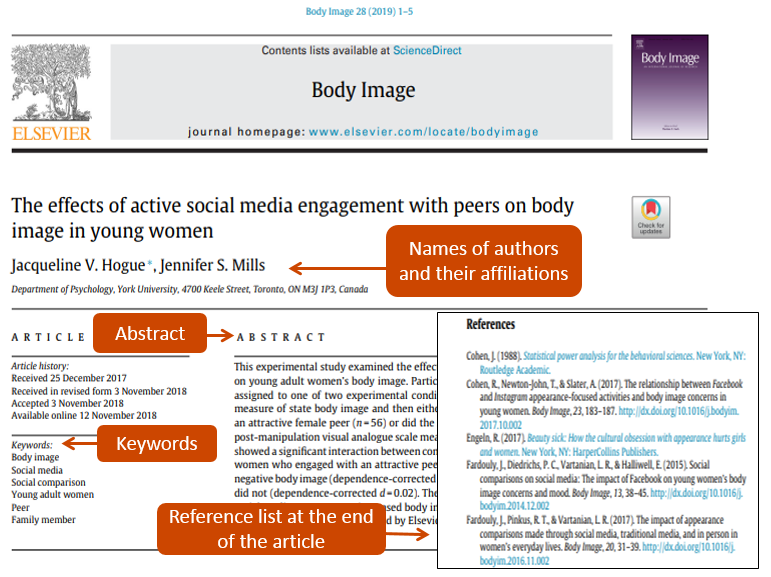Finding information
Scholarly sources
In academic study, you will be required to use various sources for your assignments, particularly scholarly sources. These are well-researched publications written by academics, researchers, and other experts in a specific field of study. Their purpose is to share recent research, theories, analyses and insights, or to provide summaries of current thinking in the field.
In brief, assignment writing involves using scholarly evidence:
- You will need to find a range of scholarly and credible sources
- Common scholarly sources include journal articles, books and book chapters, and reports.
Journal articles
Journal articles are scholarly sources that explore very specific topics. They are written by experts or researchers and provide detailed analyses of research, together with supporting evidence, in the form of references.
Many journal articles are peer-reviewed or refereed. These articles undergo a process where other scholars in the author’s field of research critically review and assess the article for its validity, quality, and originality to ensure its scholarly excellence.
Why use journal articles?
Journal articles are useful because they can provide:
-
Specialised information focused on a specific aspect of a topic.
-
Recent research findings (often where new research in a field is first published).
-
Definitions of key concepts.
-
Statistical information.
-
Lists of references (useful for finding related research).
See a journal article example below:

Books and book chapters
Books are great sources of information for scholarly research and provide a broad overview of a particular topic, often going into greater detail than other sources of information. Books are usually organised into chapters or sections, so you can focus on the chapters relevant to your needs (thus avoiding reading the entire book). Books can also introduce and explain established theories, providing notable examples of research conducted in a particular field.
Why use books?
Books are useful as they provide:
-
Definitions of key concepts and terminology.
-
In-depth coverage of a topic or subject.
-
General background information (useful if you are unfamiliar with the topic).
-
Lists of additional sources on the topic.
See Specific resources: ebooks for tips on finding and accessing ebooks.
Reports
A report is a specific format for communicating information, usually covering the who, what, where and why of a particular issue. They are typically produced by government departments, research groups, not-for-profit organisations, companies, and others, and will communicate the context behind decision-making.
You will need to exercise some caution when using certain types of reports as they may have been produced for marketing purposes and could be biased.
Why use reports?
Reports can provide:
-
Highly detailed descriptions of a particular issue, including solutions to issues.
-
Information you will not find elsewhere, especially about companies.
-
Statistics (particularly in reports produced by Government departments).
See Specific resources: Reports for tips on finding reports.
Credible sources
You will also likely use other credible sources - accurate, well-informed sources such as established news sources and trade journals, government and educational websites, legal materials, policy documents and other resources. You should always check the credibility and accuracy of these as the quality of your argument will depend on the quality of your sources.
See Specific resources for information on finding other types of resources.
Your assignment outline and marking rubric will often provide instructions on the types of sources you will need to use.